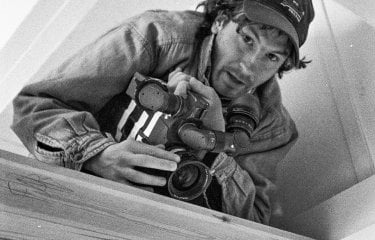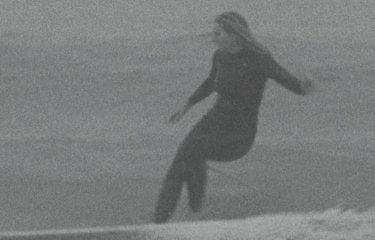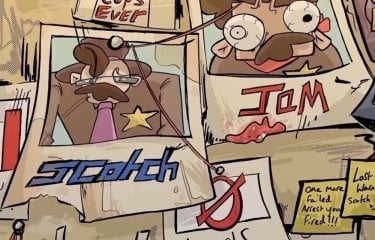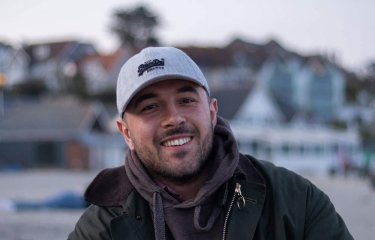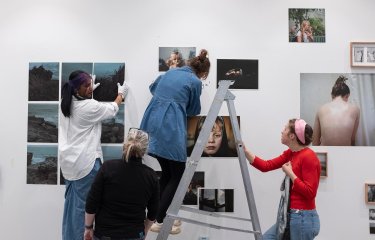From Polaroids to creating positive change: an interview with Dr Catarina Fontoura
26 May 2023
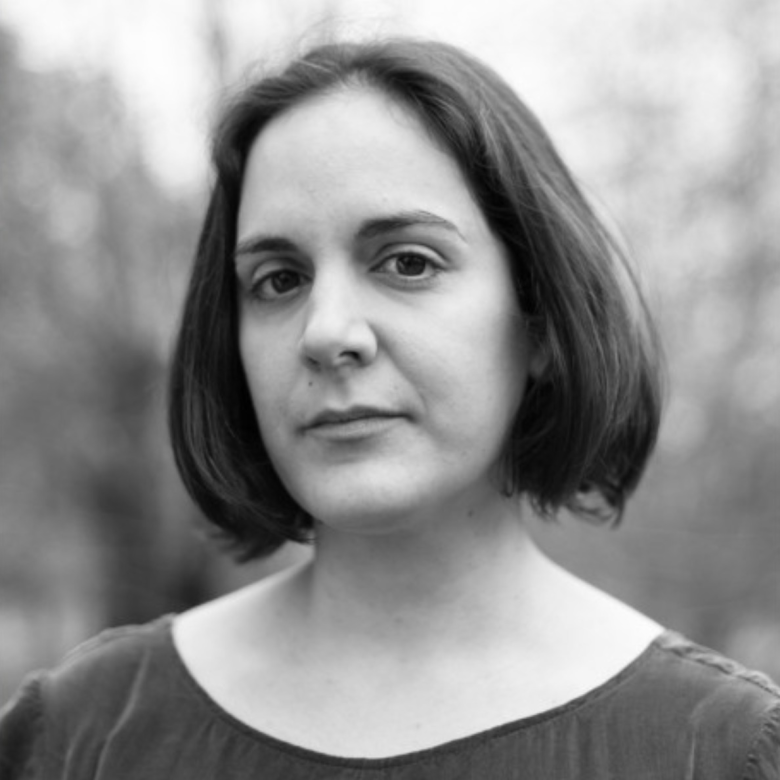
Catarina Fontoura is an artist, educator and writer. With an abundance of experience across photojournalism, fine art and documentary photography, she will lead Falmouth’s new online undergraduate degree in Photography. Ahead of the course welcoming its first cohort this September, we chatted to Catarina about her early forays into photography, her passion for creating for good, and why she is excited to lead this unique course.
What made you want to become a photographer?
It’s quite a funny story. When I was around eleven years old, I was writing a school paper on José Saramago, a Portuguese writer and recipient of the Nobel Prize for Literature. He happened to be doing an event in my hometown, so I went along with the aim of photographing him, but at the time, the only camera I had was a Spice Girls polaroid camera! So, I took that and stood in the front row taking photos of this hugely inspirational man. I attached the polaroid to my school paper, and from that moment on, I was hooked.
Can you tell us about your expertise in documentary photography?
I studied for a degree in fine art and as part of that I explored abstract and experimental photography. I then got a scholarship to study for a year in Mexico, where I learned all about photojournalism.
After I graduated, I went back to Mexico to work in a large regional newspaper as a photojournalist. I got a real sense of what it is to be a working photographer but realised that the rhythm of working in the media wasn’t for me; I wanted to work on longer-term stories, and so decided to go back to university.
I studied for a master’s degree in documentary photography, where I was surrounded by hugely talented people who wanted to tell real stories in their work through a very reflective and investigative lens. It was then that I produced a long-term documentary project which secured me a nomination for the Magnum Foundation graduate award.
What do you find is the biggest source of inspiration for your work?
For a while now, I have been most inspired by being out in the landscape and experiencing living phenomena. Beyond walking and being outdoors, conversations are very inspirational; deep, rooted and meaningful conversations with people about their lived experiences, their cultures and ways of thinking are hugely formative for me.
Literature and poetry have always been a big part of my life, and they continue to influence me, as does surrealist film and natural science. But crucially, all the artwork and photography that influences me is in some way ethically, environmentally or socially engaged. Whether subtly or overtly, I am always captivated by a fundamental undermining of the status quo.
It is vital to remember that your voice is important; you might still be an emerging practitioner, but your voice is needed in the world, and our course is focused on helping you to succeed.
Why are you excited about leading Falmouth’s new online undergraduate degree?
Falmouth is renowned for its specialist on-campus photography degrees – from Commercial Photography to Marine & Natural History Photography – and our new online undergraduate course brings all those strands together.
We will explore all the different ways you can think about and practise photography, through a future-focused lens. Creating for good is very much at the course’s core, which will impact across students’ personal, commercial and commissioned projects. Ultimately, we want to ensure that everything we do affects the world positively. There is a lot of change happening in the world, and images play a big part in shaping our understanding of that; how we process change, but also how we can influence positive change through image-making.
Another exciting thing about the course is how it will lean on our staff and students’ roots to their own places and their communities. This co-creation will enliven and enrich the course experience and help to create global networks – something that is very unique for an undergraduate degree.
How does it work studying online on a typically studio-based course like photography?
There is studio-based work to be done in photography, however it is only one part of the story. We have a suggested list of inexpensive kit for our online students, and tutorials for them to follow, so they can set up home studios or on location studio spaces in their local communities if they wish. But there are many more ways to engage with and practice photography.
Take fashion as an example; streetstyle and documentary language are now much more prevalent in campaigns than studio-based shoots. Look at all the latest Nike and Adidas campaigns – hardly any of it is done in a traditional studio setting anymore. Students will gain all the commercial skills photographers need, but through alternative means.
What do you think is the biggest challenge facing emerging photographers?
Leveraging AI is a challenge facing all creatives. It is evolving rapidly and is very good at creating. But it is not very good at finishing the details - if you're talking about a photograph of a person, for example, often the hands and ears are distorted. So, I don't think it affects photography as much as illustration or nonfiction writing. The storytelling inherent to photography – as perhaps with fiction writing – is something that only a human lived experience can generate to a degree that is relatable and emotionally engaged.
Another challenge facing emerging photographers is the ability to reach a level of social and financial stability that allows them to settle into the profession in those first few years. It is more challenging than it was, say, twenty years ago, for a wide variety of reasons. However, it is vital to remember that your voice is important; you might still be an emerging practitioner, but your voice is needed in the world, and our course is focused on helping you to succeed. Structural inequalities affect who gets to be seen and heard, and it is so important for us to make sure that people from all backgrounds are seen and heard, and that their creativity is expressed and disseminated.
